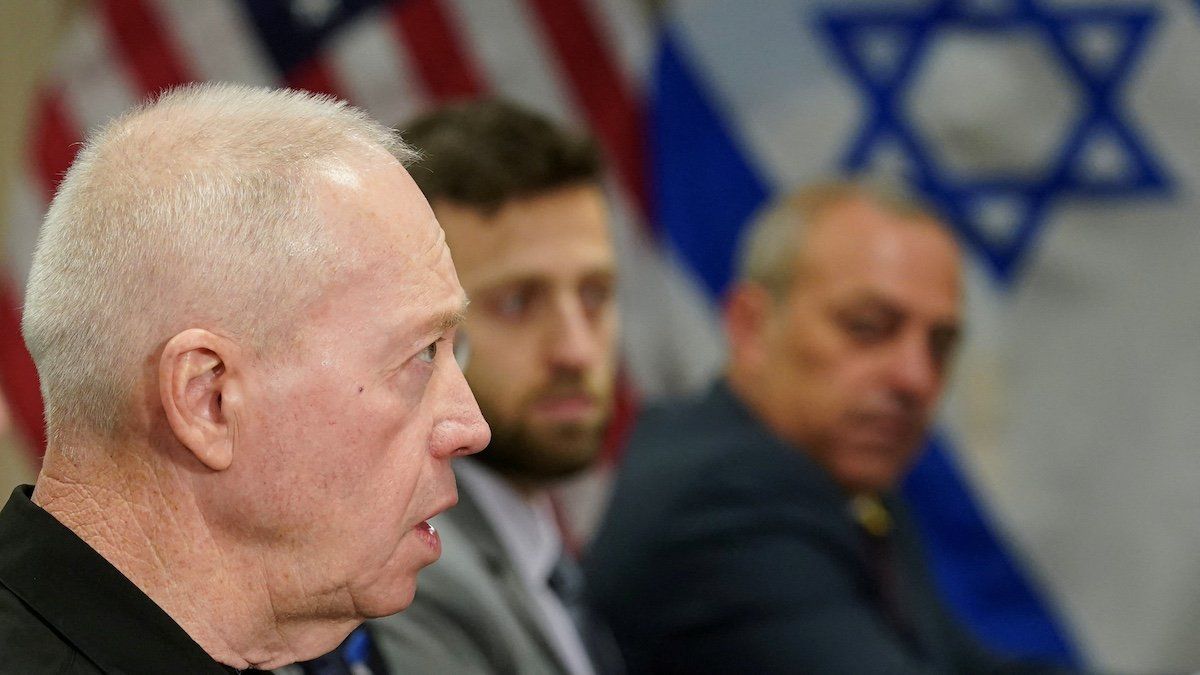Israeli Defense Minister Yoav Gallant traveled to Washington, DC, this weekend to discuss the final phase of Israel’s offensive in Gaza — and to address growing concern over hostilities with the Lebanon-based terror group Hezbollah.
Since Hamas’ attacks of Oct. 7, Hezbollah has ramped up its rocket and drone attacks on Israel, forcing the evacuation of northern border towns. Now, as Israel targets the last Hamas strongholds in Gaza, the concern is that the conflict could shift north to Lebanon.Last Wednesday, Hezbollah leader Hassan Nasrallah posted a video threatening to destroy key Israeli infrastructure with missiles if they are attacked.
The London Sunday Telegraph reported a significant increase in Iranian shipments of rockets to the group via Beirut's Rafic Al Hariri International Airport. “We are prepared for any action in Gaza, Lebanon, and more areas,” Gallant said before meeting US officials this week.
Netanyahu’s DC drama. Meanwhile, the politics are becoming increasingly perilous on Capitol Hill. Prime Minister
Benjamin Netanyahu plans to address the US Congress on July 24, and many Democrats are conflicted about whether to attend. After Bibi released a video last week
chastising Washington for withholding military aid – the US has only withheld one shipment while providing $12 billion in aid since Oct. 7 – some fear further
negativity about US support for Israel from Bibi could complicate Biden’s reelection campaign.
